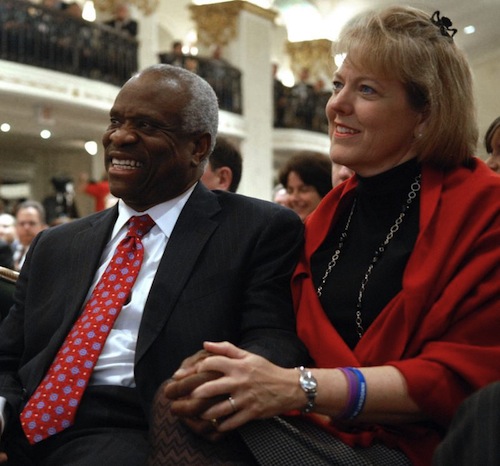Scientists* estimate that approximately one out of every three people is crazy, yet we go about our daily business as if our governmental officials, beloved celebrities and attractive dinner dates were entirely sensible and calm. It’s not until they send us all pictures of their genitals that we begin![]() to suspect the truth: pretty much everyone is a ticking time bomb, just waiting for the right traffic event or interview question to explode into ratfuck insanity. As we prepare to celebrate our nation’s independence this weekend, I thought we might celebrate those Americans who spontaneously shoot up in the air and make a terrible thunder/flash of light before falling to the ground a burnt stick. It’s Friday, several people previously believed to be reliable have gone all hoopy on us, and I am three deadlines away from a psychotic break with reality myself. Won’t you join me?
to suspect the truth: pretty much everyone is a ticking time bomb, just waiting for the right traffic event or interview question to explode into ratfuck insanity. As we prepare to celebrate our nation’s independence this weekend, I thought we might celebrate those Americans who spontaneously shoot up in the air and make a terrible thunder/flash of light before falling to the ground a burnt stick. It’s Friday, several people previously believed to be reliable have gone all hoopy on us, and I am three deadlines away from a psychotic break with reality myself. Won’t you join me?
Tag Archives: supreme court
Clarence Thomas goes 5 years without speaking during arguments
Come Tuesday, Clarence Thomas will have passed five years on the Supreme Court without asking a question or offering his opinion during oral arguments. That’s unusual. According to the New York Times, “in the 20 years that ended in 2008,* ![]() the justices asked an average of 133 questions per hourlong argument, up from about 100 in the 15 years before that.” Antonin Scalia has been known to interrupt petitioners to read aloud from Garfield. Yet Thomas, described as “gregarious” in his personal life, has not spoken from the bench—except to read prepared statements of majority opinion—since 2006. In addition to pointing out the fundamental inadequacies of the nickname “Silent Clar,” such long reticence begs a question: why?
the justices asked an average of 133 questions per hourlong argument, up from about 100 in the 15 years before that.” Antonin Scalia has been known to interrupt petitioners to read aloud from Garfield. Yet Thomas, described as “gregarious” in his personal life, has not spoken from the bench—except to read prepared statements of majority opinion—since 2006. In addition to pointing out the fundamental inadequacies of the nickname “Silent Clar,” such long reticence begs a question: why?
She seems like a nice lady. Loves cats.
If Elena Kagan isn’t a lesbian, she’s about to have her feelings hurt. The Solicitor General and Supreme Court nominee is a former dean of Harvard Law School, served as an Associate White House Counsel under Clinton, and otherwise—as our disturbingly uniform national media points out—has a mighty thin paper trail. She’s never sat as a judge, so we can’t pore over her rulings to determine whether she’s going to require abortions in church or allow mean dogs wearing American flags to preside over secret terrorist trials or whatever. Her academic writings are well-regarded but also famously technical. And you can’t tell anything about her just by looking, either. Nope—not one thing. She’s like an empty vessel, or maybe a vase with a calla lily in it, or one of those orchids by Georgia O’Keefe. She has emerged freshly formed into the national spotlight from Obama’s side like Eve, or Lilith. Maybe more like Lilith Fair.
Meanwhile, in Clarence Thomas’s wife’s head
Combat! blog vacations in beautiful sunny well-groomed Los Angeles, California, today, and finds itself already adopting Californian work habits. While I blow dry my hair in my avocado linen jacket, how about you horrify yourself with the news that Virginia Thomas, wife of Supreme Court Justice Clarence Thomas, has started her own Tea Party chapter. This will surely allay my fears! “She is intrigued by Glenn Beck and listening carefully,” says her bio on Liberty Central, a name that no one will realize is ironic until midway through the 2012 corporate giving season election. In addition to holding the power to un-forgive a member of the Supreme Court for publicly acknowledging that he makes a lot pubic hair jokes, Virginia Thomas’s 501(c)4 can accept an unlimited quantity of corporate donations. “Because of a recent Supreme Court decision,” the LA Times observes drily, “the group may also spend corporate money freely to advocate for or against candidates for office.” Or it could, had it not already been busted for operating illegally. Faster than you can say “conflict of interest in sleeping on the hide-a-bed, Clarence,” Virginia consumer protection officials sent a letter of warning to Mrs. Thomas, informing her that Liberty Central was receiving donations while not properly registered as a charity. At least we know she’s not getting free legal advice. The citation is not uncommon—”Our policy is to assist them to come in compliance with the law,”* says state regulator Michael Wright—so Thomas’s group will either A) go the same way as that sweater she started knitting or B) funnel millions of corporate dollars to conservative political candidates while her husband adjudicates from the Supreme Court. Coin toss!
Friday links: Party like it’s 1899 edition
 Forget all the trends you thought defined the last year—hope, resentment of the federal government, economic insecurity, reactionary populism, the baffling and continued popularity of Uggs. Put them out of your mind. All of those are as raindrops against the windowpane, noisome in announcing their impact but evaporating with any light. No, there’s only one trend that defines the current American moment, and that’s nostalgia. In a single 5-4 stroke yesterday, the Supreme Court returned us to the age of the Robber Baron, declaring that the government cannot legally restrict spending by private corporations on political elections. It was a victory for any American who feels that large corporations don’t exercise enough influence over US politics, by which I mean direct descendants of Cornelius Vanderbilt. The rest of us had best wax up our mustaches and roll up our sleeves, because the next hundred congressional and presidential candidates who imply that there should be some sort of law limiting how long we must work or how little we can be paid are going to have the sum GNP of our great nation directed against them. But a longing for the good old days of outright corporatocracy isn’t the only nostalgia sweeping the country. All week, people have been judging, arguing, organizing and reasoning using the tools available to us in the nineteenth century, by which I mean primarily racism, religion and old-fashioned stupidity. Won’t you join me in criticizing them, before the Supreme Court rules that publicly doing so constitutes an unlawful restraint of trade?
Forget all the trends you thought defined the last year—hope, resentment of the federal government, economic insecurity, reactionary populism, the baffling and continued popularity of Uggs. Put them out of your mind. All of those are as raindrops against the windowpane, noisome in announcing their impact but evaporating with any light. No, there’s only one trend that defines the current American moment, and that’s nostalgia. In a single 5-4 stroke yesterday, the Supreme Court returned us to the age of the Robber Baron, declaring that the government cannot legally restrict spending by private corporations on political elections. It was a victory for any American who feels that large corporations don’t exercise enough influence over US politics, by which I mean direct descendants of Cornelius Vanderbilt. The rest of us had best wax up our mustaches and roll up our sleeves, because the next hundred congressional and presidential candidates who imply that there should be some sort of law limiting how long we must work or how little we can be paid are going to have the sum GNP of our great nation directed against them. But a longing for the good old days of outright corporatocracy isn’t the only nostalgia sweeping the country. All week, people have been judging, arguing, organizing and reasoning using the tools available to us in the nineteenth century, by which I mean primarily racism, religion and old-fashioned stupidity. Won’t you join me in criticizing them, before the Supreme Court rules that publicly doing so constitutes an unlawful restraint of trade?




